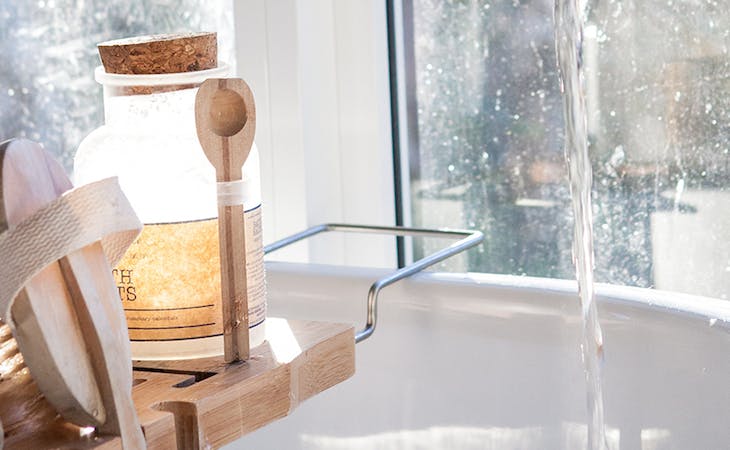If you’re one of the estimated 50-70 million Americans who suffer from a sleep disorder, there’s a good chance you’ve heard of Epsom salt. The renowned bath product has risen in popularity over the last year for its soothing effects on the body. Epsom salt enthusiasts claim it’s the perfect addition to their nighttime routine—that it de-stresses their minds.
If you need to calm your head before bed, is Epsom salt really the secret? Does it actually have the healing and sleep-inducing powers it boasts?
What is Epsom salt?
Epsom salts, or bath salts, are not actually salt, but a naturally occurring compound of minerals made up of magnesium and sulfate. You can either soak in an Epsom salt bath or use the salts as an exfoliating scrub for more direct skin contact.
It’s all about the magnesium
According to Psychology Today, in addition to immune system functionality, metabolism, and blood pressure, magnesium levels can play a key role in mental health.
If you need to wind down at the end of a long day, it only makes sense to want to give Epsom salt a shot. Many believe that if you soak in the salt, your body will absorb the magnesium sulfate through the skin. Thus, fueling your body with the magnesium that it’s been deprived of.
Does Epsom salt work?
While many do claim to see actual benefits from a long Epsom salt bath or scrub, there has been little to no scientific evidence to back it up. Michigan State University states that any success people see could be from a placebo effect and that the results were from the separation of the day’s activities. And logically, that makes sense. A heated bath can make you sweat, which can help your body release excess salt and other toxins. Thus, relaxing you. But so far, there’s no scientific evidence to back up the claim that your body can actually absorb magnesium sulfate through the skin.
What can work instead?
If you’ve tried an Epsom salt bath, and believe it worked for you, keep at it! While there may not be scientific evidence right now, you never know. There’s no harm in a long Epsom salt bath, and if you find it soothing, we say go for it.
If you’re looking for another, science-backed, way to wind down at the end of the night, we recommend investing in an essential oil for sleep, like lavender. A drop or two on your pillow, or in your bath, is proven to help the body relax.




